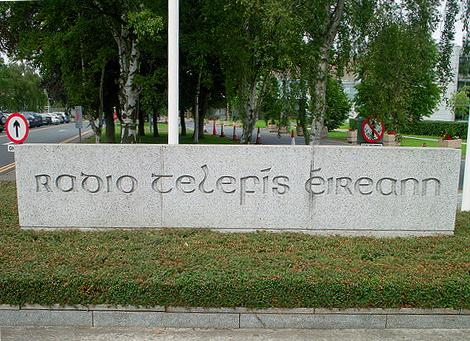Gallagher tweet the least of RTÉ's problems

The BAI finding was no surprise - RTÉ's big problems lie elsewhere. By Vincent Browne.
RTÉ has a lot to worry about, but the Broadcasting Authority of Ireland (BAI) finding against the station on the Seán Gallagher tweet probably ranks somewhere around number 17 in the station's catalogue of concerns, well behind its financial crisis, its morale crisis and the Fr Kevin Reynolds controversy.
We knew, a few days after the presidential election,that the tweet that undid Seán Gallagher had been bogus - and we knew also that a correcting tweet from Sinn Féin had been ignored by RTÉ.
We appreciated that RTÉ had made mistakes in broadcasting the erroneous tweet in the first place, and in not correcting this on air during the final TV presidential debate, and in not correcting it again the following morning on Pat Kenny's radio programme. But nobody except the paranoid believed that this was other than a series of simple and understandable errors, made under pressure.
So the BAI finding was no surprise and no big deal either. No big deal because no unjustifiable damage was done to the campaign of Seán Gallagher. For Gallagher was far more embedded in Fianna Fáil than he had previously talked about. His involvement in Fianna Fáil was such that he was even engaged in the arranging of private meetings of the Taoiseach of the day with rich donors. Yes, it's legal, but it's surely not the kind of thing that Taoisigh should spend their time doing.
Were it not for that anonymous, erroneous tweet, we might not have been alerted to the scale of Gallagher's involvement with Fianna Fáil, because we in the media had played dead.
And aside from a journalist at the Sunday Business Post, and another at the Irish Times, none of us journalists bothered, until too late, to examine Gallagher's business dealings and, particularly, the transaction where he withdrew funds from one of his companies. He dismisses the latter as an "accounting error".
However, RTÉ’s big problems lie elsewhere. Its financial crisis has arisen from the collapse of advertising revenue and the bloatedness of the organisation. There is not much it can do about ad revenue.
The delays in the finalisation of the various inquiries, notably the BAI one into the Kevin Reynolds affair, haven't helped. But we all know now what happened.
A seemingly irreproachable initial source, backed up by a seemingly irreproachable second source, backed up by a supposedly prime witness (the woman who allegedly had sex with the priest when she was below the age of consent and who allegedly gave birth to his child), convinced the programme makers that the allegations that he had fathered a child, having had sex with an underage woman, were true. This conviction overrode an appropriate caution when a denial was accompanied by an offer to authenticate the denial via a paternity test.
This gross libel was compounded by almost everything RTÉ did before, during and subsequent to the broadcast: the "ambush" in the church car park; the hype the station generated prior to the broadcast; the mood music that accompanied the broadcast (sophisticated television documentary makers insist that the clearly pejorative sound effects that accompany most of this genre is "best practice" of the trade, or is it "state of the art"?); the arrogant treatment of the priest subsequent to the broadcast; the delay in communicating the result of the exonerating paternity test; the inaction of the RTÉ Authority once it was appreciated that what had been broadcast had been an outrageous libel; the "rolled heads don't learn anything" initial assertion of no accountability; and the dismissive tone of the initial apology broadcast after the court authenticated settlement of the libel action.
To make matters even worse for the station, the current chairman of the authority, Tom Savage, in an off-the-cuff interview with an entertainment correspondent, said - long before any inquiry had been concluded - that the final call to broadcast the programme had been made by Ed Mulhall, RTÉ's head of news and current affairs.
Savage was an inspired choice as chairman of the RTÉ Authority. He is the most savvy of communicators, and a brilliant strategist. For him to have made such remarks, especially in that context, is inexplicable.
As I understand it, a few hours before the Prime Time Investigates programme on Kevin Reynolds was broadcast, Mulhall was phoned by the programme makers, was informed of the offer of the paternity test, and was told also of the disbelief of the programme team that this offer was anything more than a delaying device.
This all occurred when he, Mulhall, was at College Green, engaged in directing the broadcast of the Barack Obama address. Under pressure from the programme team, he gave his assent.
Clearly, the Reynolds programme should not have been allowed to go ahead. But were Mulhall to be depicted as the "fall guy" for that singular error - especially given his track record as head of news in building a news output which in so many respects has been so commendable and of such public service - it would seem to me to be grossly unfair.
But all that is still to be resolved. By comparison, the Seán Gallagher business doesn't amount to much.
Image top: infomatique.
